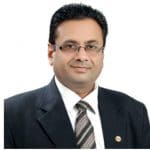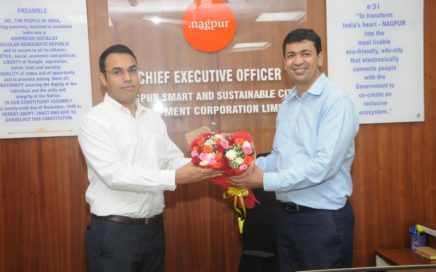
SMT RajkamalTidkeMahavidyalay ,Mauda has organized a Webinar on *“Role of NEP 2020 , for Change in Pedagogy” . Dr. Sanjay S Uttarwar aRenowned Motivational Speaker and Senior Academician from Nagpur, was Key note speaker. It was Live on google meet platform. DrDebashisBhowmick Principalwelcome and introduce speaker to the audience. Students all staff of College was online for webinar.
Management of College extendtheir best wishes and blessings for the event. .Principal has expressed his views and state the importance of NEP to the audience.
Dr Sanjay Uttarwar says that New Education policies focus will be on 360-degree approach to education. He further throw light on Academic Credit bank (ACB) in NEP, How this new NEP will be helpful to the students become employable , When the new NEP will come in force , While explaining the Role, Responsibilities and Opportunities for teacher he says that National Education Policy 2020 , has totally changed the role of teacher. Teacher should not confine him to his field only. He should possesses the all round knowledge to fulfill demand of hour. So the role of teacher in coming days is very crucial to frame the future of India.
Dr. Sanjay Uttarwar nicely explain the importance of subject. Majority staff was on line for the webinar . He share present status of academics and gave brief idea about societies and Govts expectations from teacher as a whole. He explained Aim, Principles , Structure of NEP to the online participants of webinar. He is a renowned Academician of central India and in this field since last thirty two years. He has proved his expertise by serving renowned educational groups of Maharashtra and MP and CG. He has done Post graduation and PhD from Visvesvaraya National Institute of Technology Nagpur in Mechanical Engineering. He has done MBA in HR and MKTNG from RTMNU Nagpur He is recipient of seven National and International Level Awards for his outstanding contribution to the field of academics and research. He has visited UK, Singapore, China to present research papers in International Conferences. He is having sixty threeresearch papers to his credit which are published in International Journals and Conferences.
In his delivery Dr. Uttarwar elaborate the importance of Implementation of NEP for better future of India. He says that teacher has to play key role in Nation Building, in NEP2020. Teachers should work to improve logical thinking ability of child in his early age of three to six years which is a crucial phase.Dr. Uttarwar further says that, 85 % of child’s brain develops in this age group, which should be framed cautiously. That’s why he says that role of Primary and secondary teacher is of utmost importance. He states that Out of the Box thinking is necessary among students for nations Development. He quotes various examples of out of the Box Thinking related to renowned scientists of of World. He further explained how teaching learning and assessment shall be in future if it is work from home mode of working? How industry will adjust with this type of situation?
How the roles of faculty members would change in the modern and new education system? Why industry oriented courses are on a priority and what should be done for development faculty members on these lines? How the new NEP and industry would go together? What kind of training is required for faculty development in the new NEP .He further says that . He further elaborate about ancient education system of our country. The rich heritage of ancient and eternal Indian knowledge and thought has been a guiding light for this Policy. The pursuit of knowledge (Jnan), wisdom (Pragyaa), and truth (Satya) was always considered in Indian thought and philosophy as the highest human goal. The aim of education in ancient India was not just the acquisition of knowledge as preparation for life in this world, or life beyond schooling, but for the complete realization and liberation of the self. World-class institutions of ancient India such as Takshashila, Nalanda,Vikramshila, Vallabhi, set the highest standards of multidisciplinary teaching and research and hosted scholars and students from across backgrounds and countries. The














